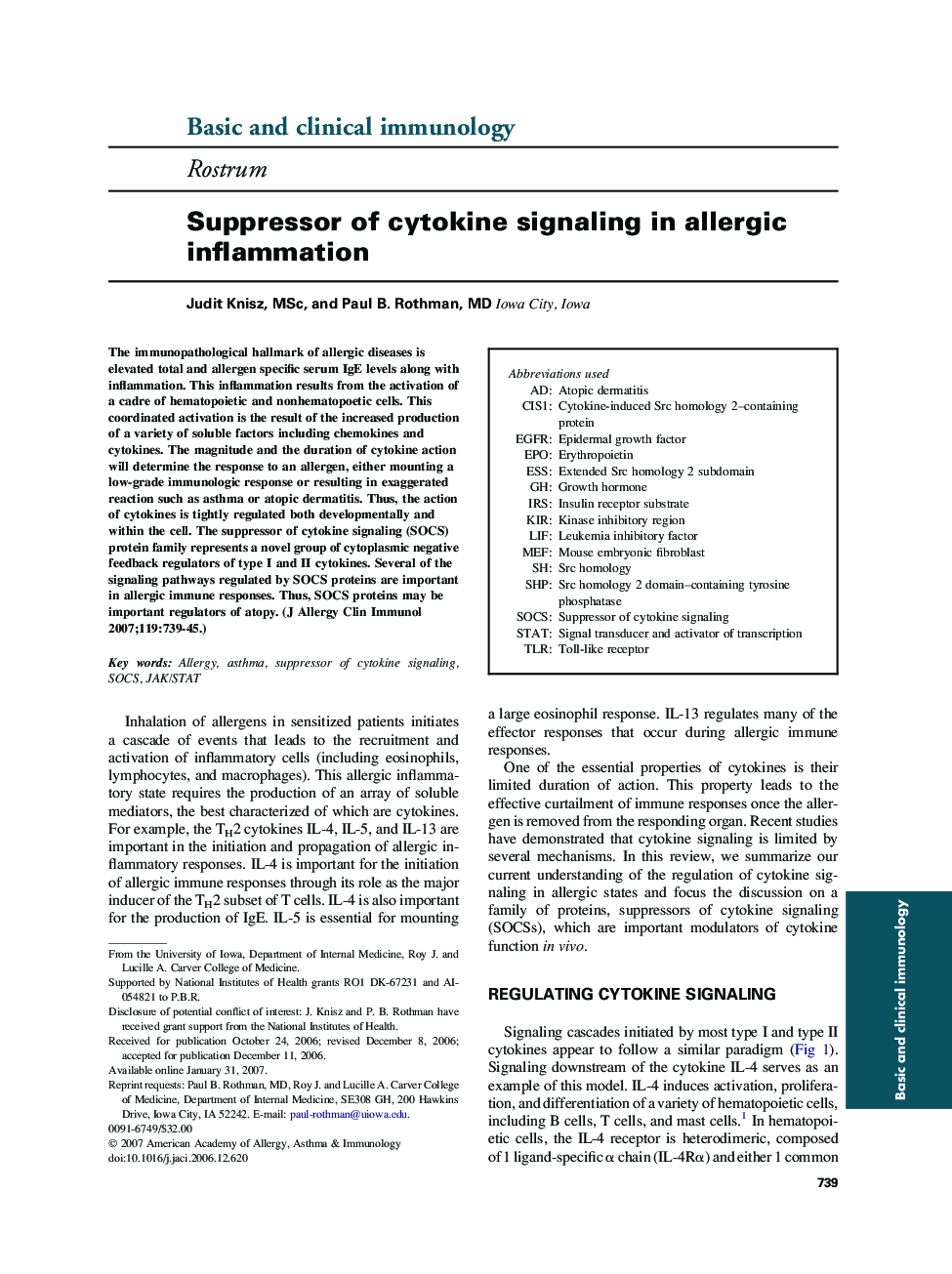| Article ID | Journal | Published Year | Pages | File Type |
|---|---|---|---|---|
| 3203425 | Journal of Allergy and Clinical Immunology | 2007 | 7 Pages |
The immunopathological hallmark of allergic diseases is elevated total and allergen specific serum IgE levels along with inflammation. This inflammation results from the activation of a cadre of hematopoietic and nonhematopoetic cells. This coordinated activation is the result of the increased production of a variety of soluble factors including chemokines and cytokines. The magnitude and the duration of cytokine action will determine the response to an allergen, either mounting a low-grade immunologic response or resulting in exaggerated reaction such as asthma or atopic dermatitis. Thus, the action of cytokines is tightly regulated both developmentally and within the cell. The suppressor of cytokine signaling (SOCS) protein family represents a novel group of cytoplasmic negative feedback regulators of type I and II cytokines. Several of the signaling pathways regulated by SOCS proteins are important in allergic immune responses. Thus, SOCS proteins may be important regulators of atopy.
